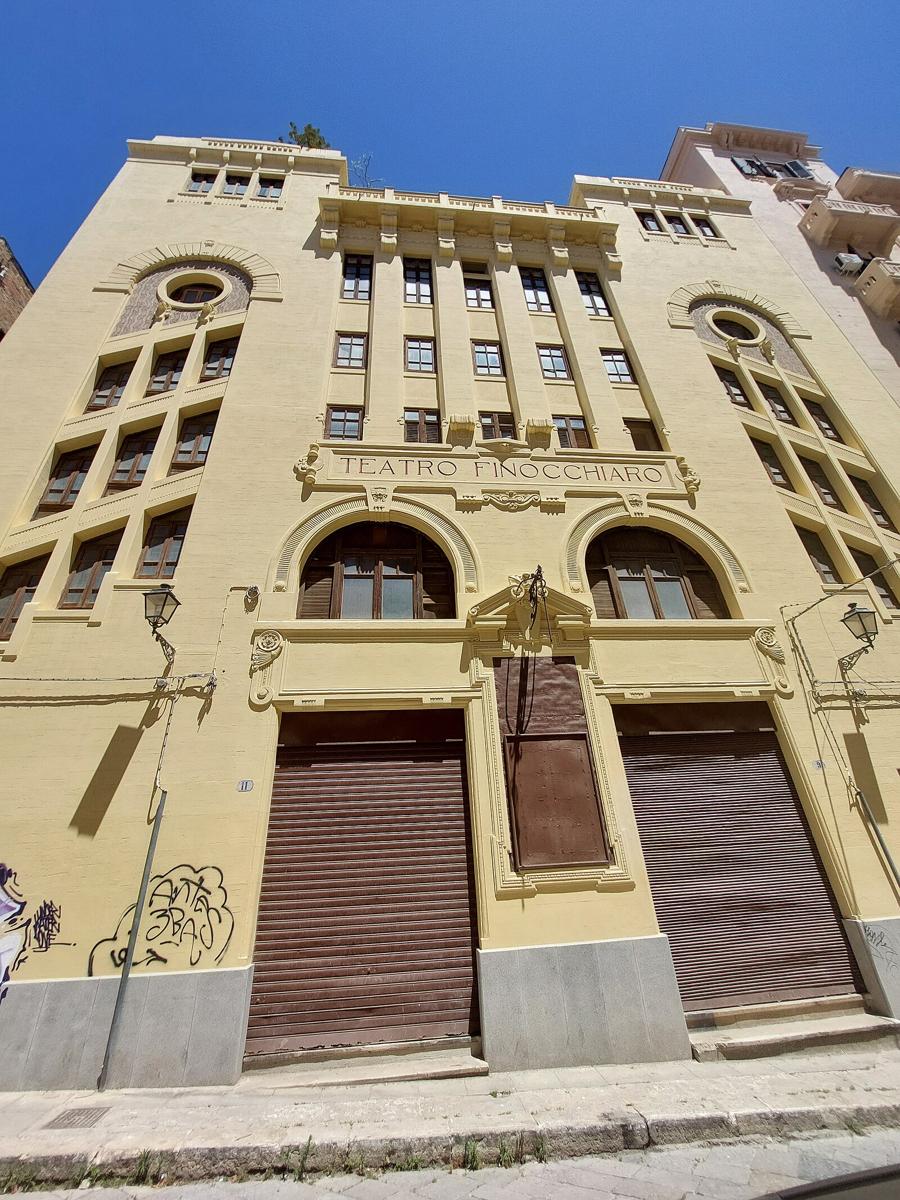Palermo Italy is a city where the past meets the present in a colorful dance. The sun warms ancient stones, cafés spill laughter onto the pavement, and history whispers from every corner. If you think of Italy as just Rome or Venice, Palermo offers a different story – one full of deep culture, lively markets, and secret little places waiting to surprise you. This city, on Sicily’s northwest coast, stands proud with centuries of conquerors’ marks and its own bold personality. Whether you’re walking its bustling piazzas or tasting its rich street food, Palermo will pull you in with stories and flavors no other city can match.
Table of Contents
Palermo’s Landmarks That Speak Volumes
Start your exploration at the majestic Palermo Cathedral. It looks like a castle, with a mix of Norman, Gothic, and Baroque styles-a true patchwork of the city’s layered history. Climb to the rooftop terraces if you can; the views of the red-tiled rooftops and distant sea are breathtaking. Nearby, the Norman Palace with its glorious Palatine Chapel dazzles visitors with golden mosaics that shimmer like sunlight caught in glass.
A natural extension of Palermo’s rich history appears in Valencia’s cathedral and its historic treasures, showcasing another city’s story through its sacred stones.
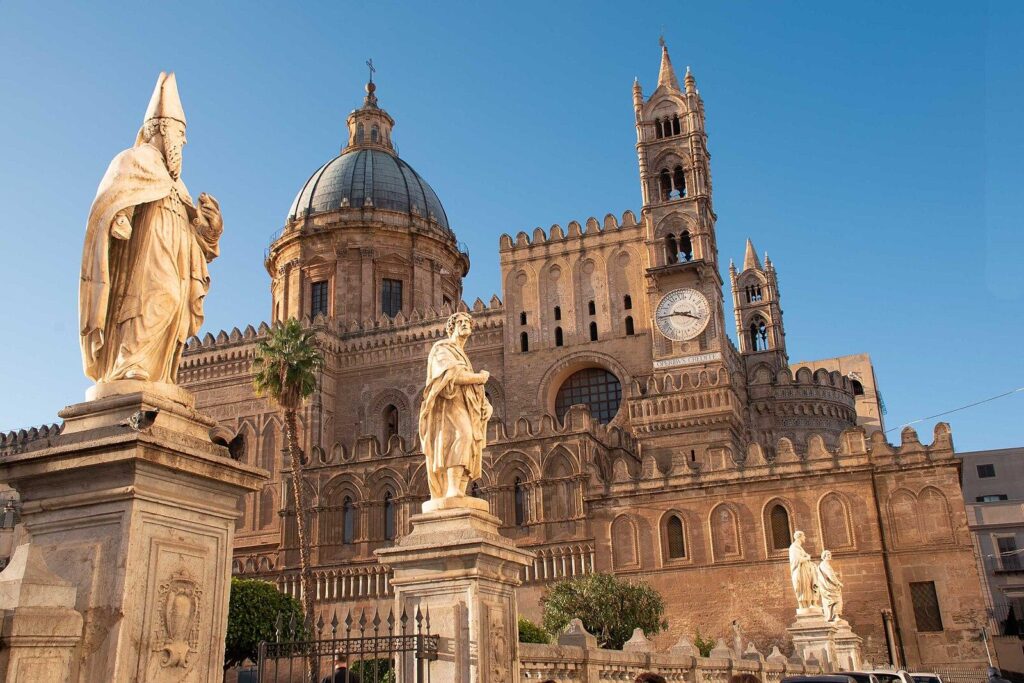
Just a short walk away, stop by the Teatro Massimo. It’s Europe’s third-largest opera house and a striking example of 19th-century architecture. If you have time, catch a performance or simply admire its grand staircase and detailed statues.
Hidden in the city’s heart, the Quattro Canti, a baroque square, surprises visitors with its symmetrical, sunlit facades and fountains-sometimes called the “Theater of the Four Corners.” This is where Palermo’s four historic quarters meet. Watching the city life unfold here is like stepping into a living postcard.
If you enjoy learning about vibrant Italian public squares and their stories, you might find Milan’s Duomo and Piazza del Duomo equally captivating.
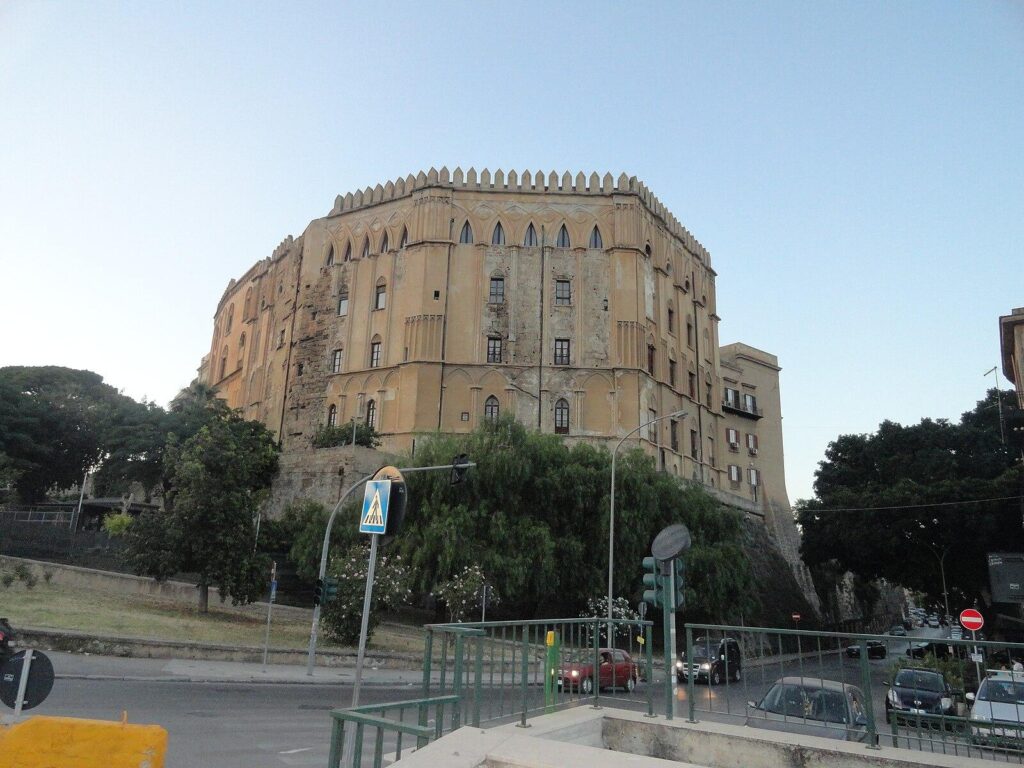
Palermo’s Markets: More Than Just Shopping
Vibrant markets are the soul of Palermo. The Ballarò Market wakes early and never truly sleeps. Here, voices shout prices, and fresh fish gleams beside pungent cheeses and vibrant vegetables. Taste freshly fried arancini-crispy rice balls stuffed with ragù or cheese-at one of the small stalls. Each bite is a warm, savory surprise.
Close by, the Vucciria Market used to be loud and wild. Today, it blends history with modern life, with bars and street art lining the old market alleys. It’s a great place to feel the city’s pulse after sunset, where locals gather and music drifts through the air.
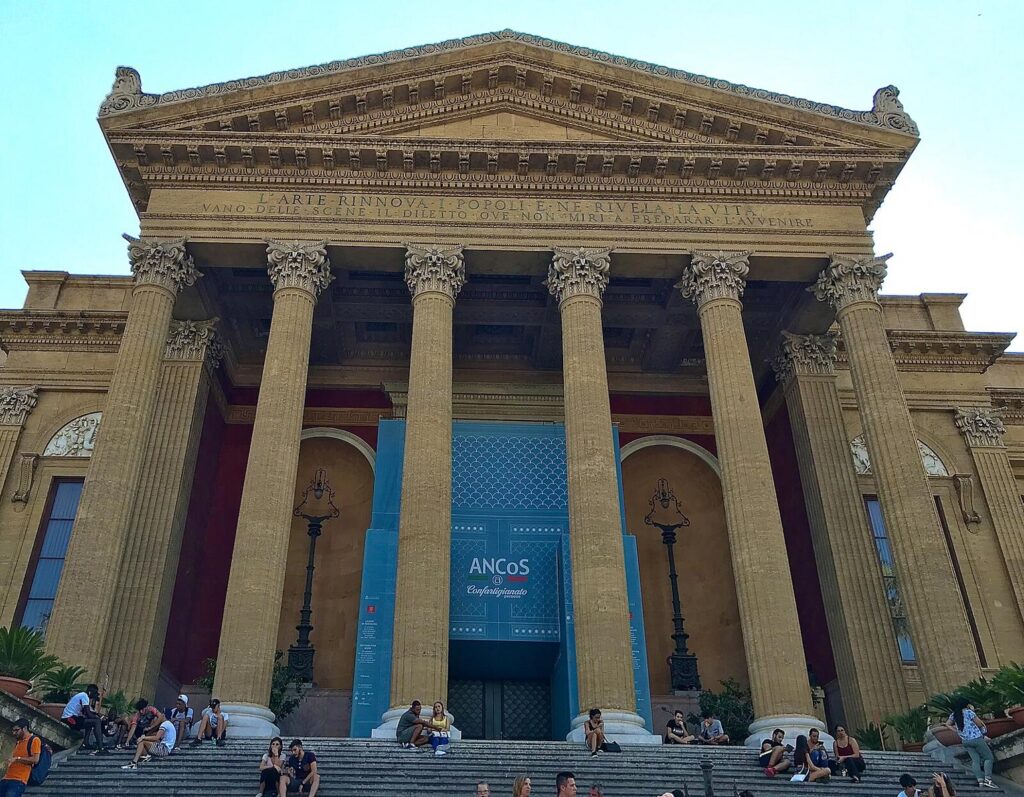
Markets in Palermo aren’t just for shopping. They’re places to chat with vendors who might share stories or cooking tips. I met an elderly fishmonger who claimed to recognize every customer’s favorite fish, treating each like an old friend.
Where to Stay in Palermo for Comfort and Charm
Choosing a place to stay in Palermo means deciding how close you want to be to the city’s heart. The historic center is the most popular. Here, you’ll find charming guesthouses tucked into old buildings with balconies overflowing with flowers. Waking up to church bells and street sounds is part of the experience.
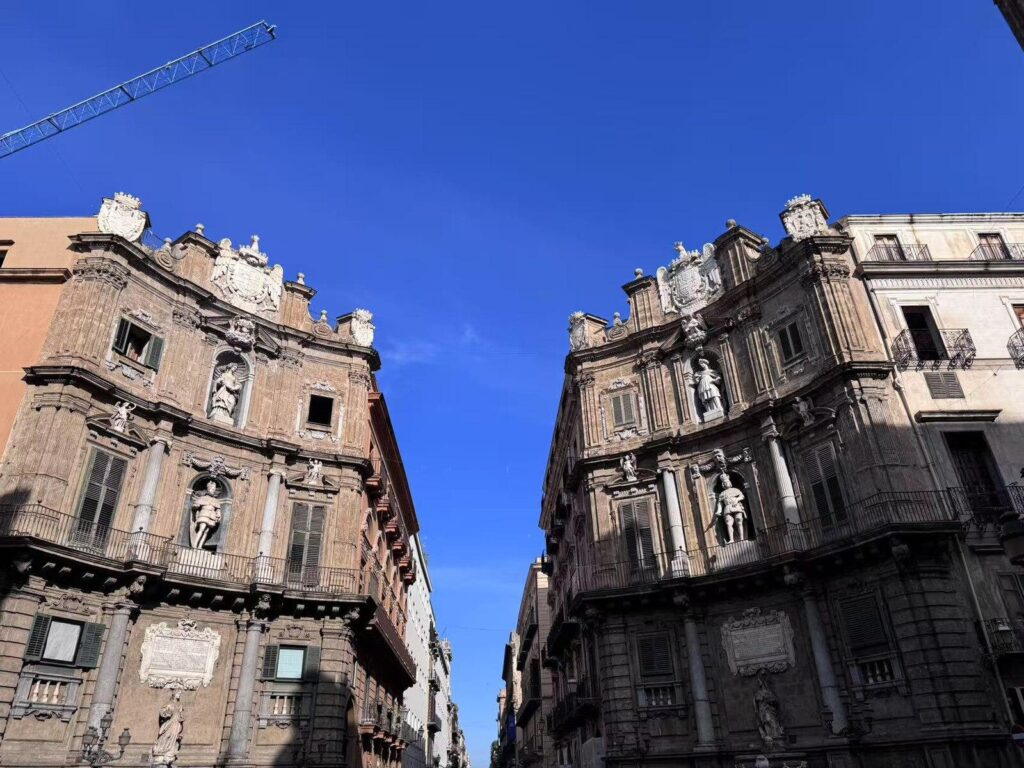
For a quieter stay, look toward the Kalsa district. It’s a mix of old palazzi, small museums, and peaceful gardens. Though near the city center, it feels like a little retreat from Palermo’s nonstop energy.
If you prefer coastal views, consider accommodation near Mondello Beach, a short bus ride away. The sandy shore and clear waters offer a refreshing break after city wanderings.
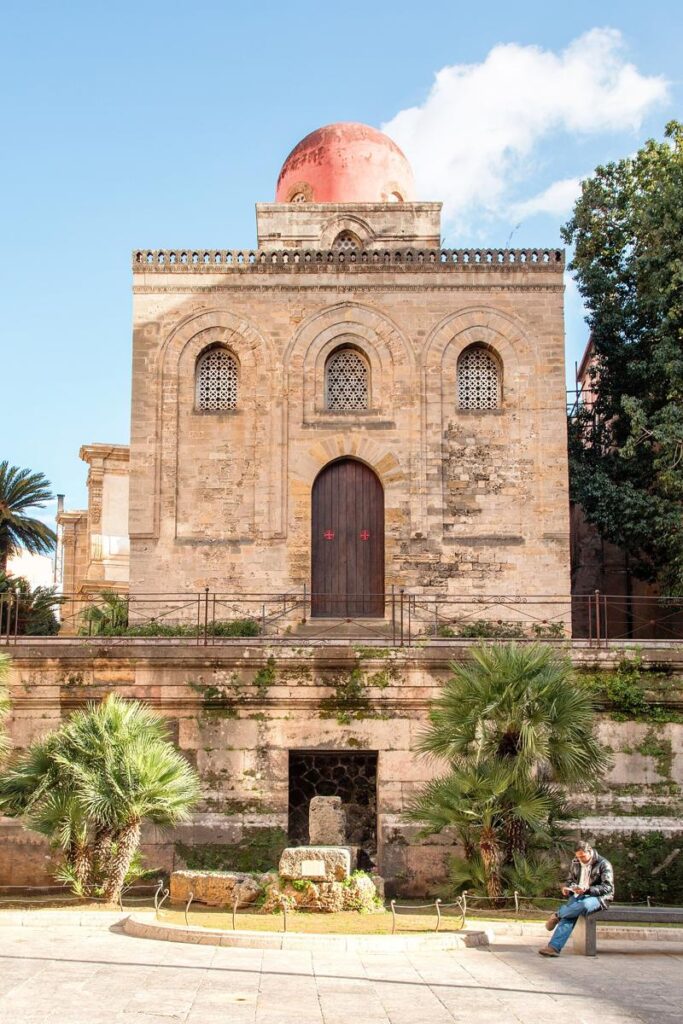
Getting Around Palermo: Tips for Easy Travel
Palermo’s airport sits about 35 minutes from the city center by public bus, making arrival simple and affordable. The retractable bus lines run frequently, dropping you close to major hubs.
Once in the city, the best way to soak in the atmosphere is on foot. Many important sights cluster within walking distance. For longer trips, the local buses and trams connect key areas but can sometimes be slow. Enjoy the slower pace-Palermo isn’t a place to rush.
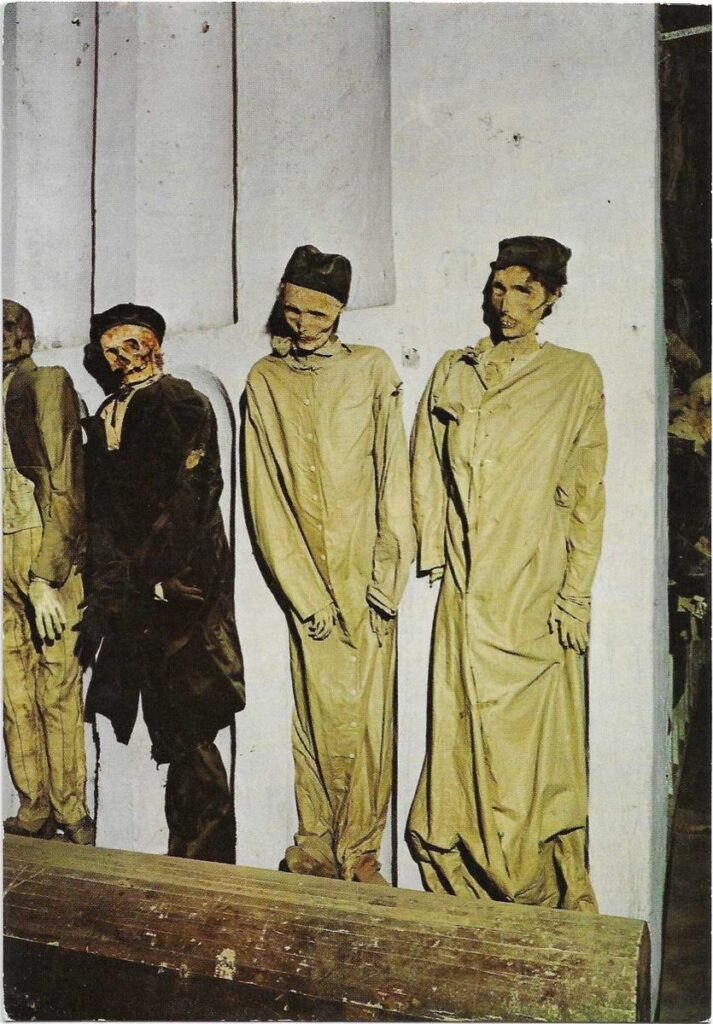
Palermo’s Food: A Feast of Flavors and Stories
The food here is a delicious clue to Palermo’s past. Sicilian cuisine blends Arab, Norman, and Spanish influences like no other region. In the Vucciria area, street food rules supreme. Try panelle, crispy chickpea fritters that locals love as a snack. Nearby, a stall might offer sfincione, a thick, spongy pizza topped with onions, tomatoes, and breadcrumbs-a true local classic.
For a sit-down meal, the Albergaria district offers cozy trattorias serving pasta alla Norma, a dish named after an opera, mixing pasta with eggplants, ricotta salata, and tomato sauce. Its story is as rich as the ingredients.
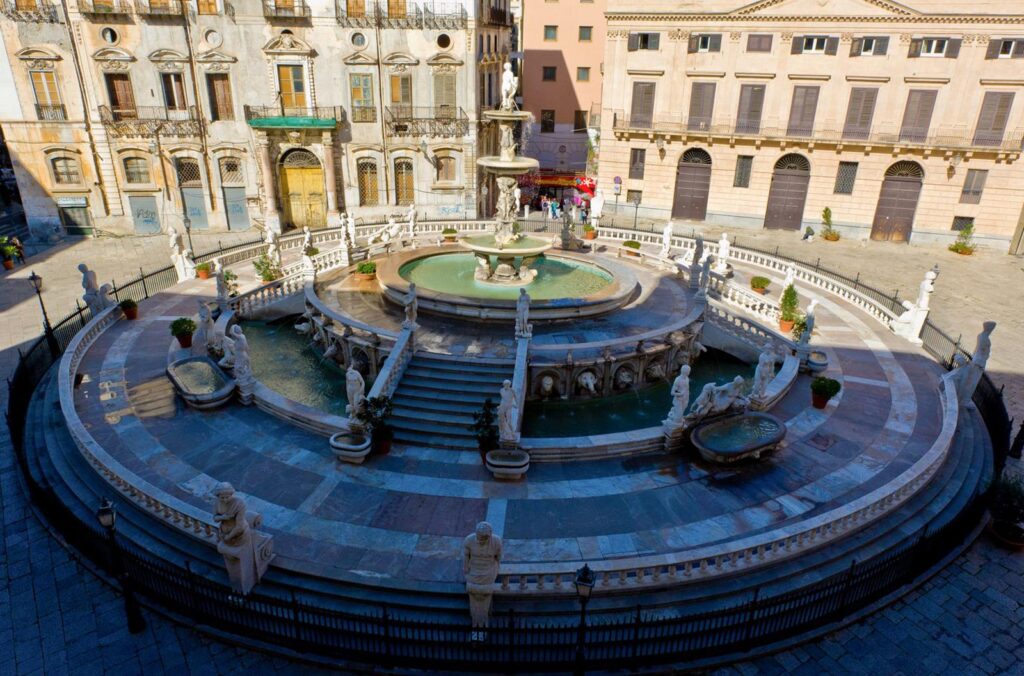
Local Customs and Friendly Advice
Palermo’s people are warm but proud of their traditions. When you meet locals, a handshake or a light cheek kiss is a common greeting. Don’t rush meals; food is about sharing time and stories. Also, it’s polite to dress modestly when visiting churches-cover shoulders and knees.
Enjoying Palermo’s vibrant markets and rich flavors naturally leads to tasting Sicily’s other distinct food scenes, like Catania’s fresh seafood and volcanic-inspired dishes in Catania’s Local Flavors.
One quirky tip: avoid calling Sicily “just an island.” It’s more like a world of its own, fiercely independent with deep roots. Expect spirited debates if you hint otherwise!
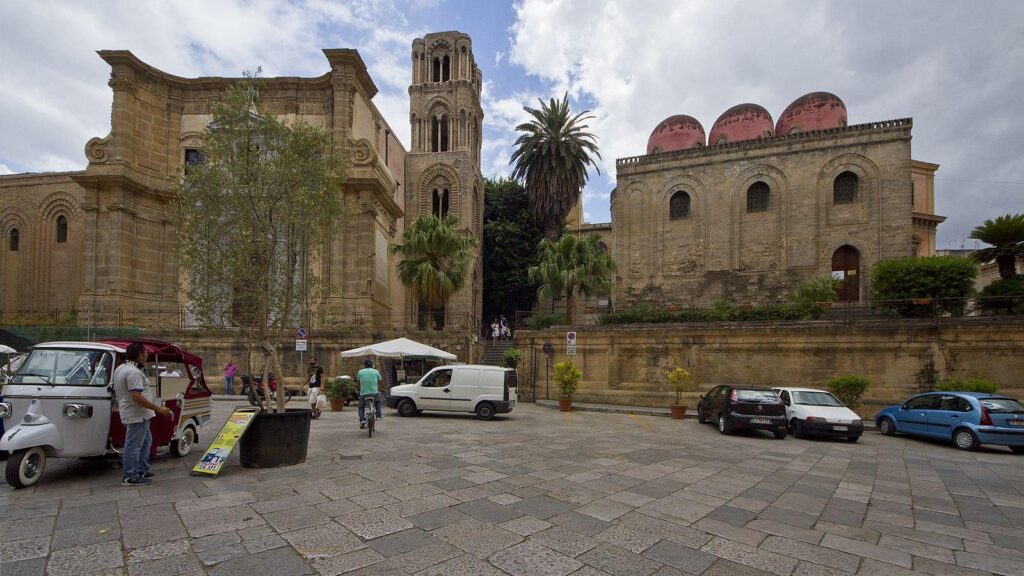
Unforgettable Moments and Oddities in Palermo
One evening, while wandering near the Foro Italico waterfront, I stumbled upon a group of elderly men playing bocce ball with lively chatter and laughter echoing over the sea air. This simple scene, unchanged for decades, somehow felt like a secret invitation to slow down and join in.
Did you know Palermo once had a series of underground tunnels used during sieges? Today, some of these tunnels are open for tours, offering a glimpse beneath the city streets where history literally runs deep.
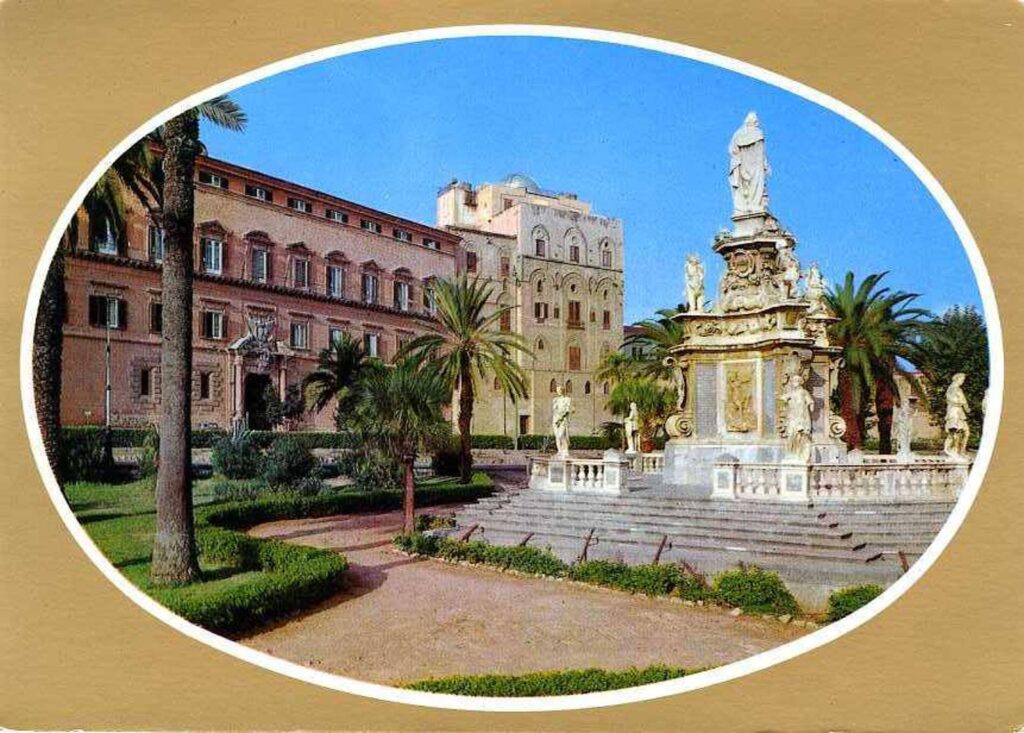
Another hidden wonder is the Capuchin Catacombs where thousands of mummified bodies are on display, dressed in their finest clothes. It’s a stark but fascinating look at Palermo’s unique attitude toward death and memory.
Palermo Italy is not just a city; it’s a lively story told in stone, flavor, and smile. Its corners hold postcards waiting to be captured, myths wandering in café smoke, and a spirit that invites you to walk, eat, and simply be.
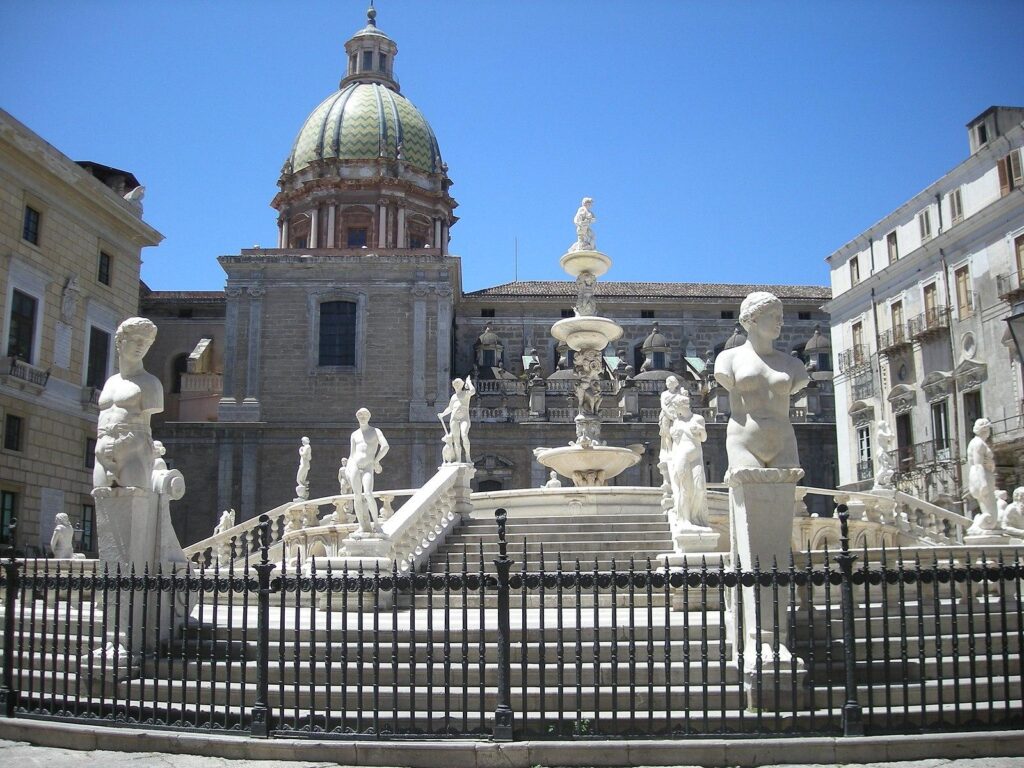

A digital nomad exploring cities across the globe, with a passion for local street food and hidden cafes.
- Palermo – Teatro Finocchiaro by HaguardDuNord on Wikimedia Commons – cc by 4.0
- Cathedral of Palermo on the Italian island of Sicily (49491355827) by Ralf Steinberger from Milan, Berlin + Munich, Italy + Germany on Wikimedia Commons – cc by 2.0
- Palazzo dei Normanni back view, Palermo, Sicily, Italy (9459180952) by l0da_ralta on Wikimedia Commons – cc by 2.0
- Ingresso del Teatro Massimo (Palermo) by Sergio Spolti on Wikimedia Commons – cc by-sa 4.0
- Italian building by Jiajiami on Wikimedia Commons – cc0
- Chiesa di San Cataldo (27775003939) by Andrea Schaffer from Sydney, Australia on Wikimedia Commons – cc by 2.0
- D7B7339 bis Piazza Pretoria & Municipio by Salvatore Ciambra on Wikimedia Commons – cc by-sa 4.0
- Kalsa, Palermo, Italy – panoramio (4) by trolvag on Wikimedia Commons – cc by-sa 3.0
- Fontana Pretoria Palermo 2006 by Fabio Meliciani on Wikimedia Commons – cc by-sa 4.0
